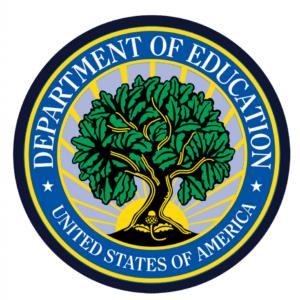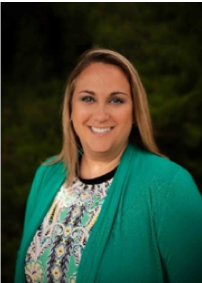28 Jun2022
By Kaitlyn Brennan
This weekly Washington Update is intended to keep members informed on Capitol Hill activities impacting the educator preparation community. The views expressed in this post do not necessarily reflect the views of AACTE.
All eyes were on Washington Friday morning as news broke that the Supreme Court has officially overturned Roe. V. Wade. American Federation of Teachers President Randi Weingarten issued a statement:
28 Jun2022
By Natalie Khairallah
 The Council of State Governments (CSG) is partnering with the Department of Defense and the National Association of State Directors of Teacher Education and Certification to develop the Interstate Teaching Mobility Compact (ITMC) — a new interstate compact — to help offset the steep shortage of teachers across the nation.
The Council of State Governments (CSG) is partnering with the Department of Defense and the National Association of State Directors of Teacher Education and Certification to develop the Interstate Teaching Mobility Compact (ITMC) — a new interstate compact — to help offset the steep shortage of teachers across the nation.
The ITMC is a legal contract between two compact member states that will allow teachers greater mobility and more employment opportunities inside the classroom by eliminating additional licensing and testing barriers that would be typically required.
28 Jun2022
By Natalie Khairallah
Among the many challenges K-12 educators are gearing up for this upcoming academic year, building more equitable, inclusive schools is of utmost priority. The Massachusetts Institute of Technology (MIT) is proposing a new project for the U.S. Department of Education’s Innovation and Research program to implement and test a whole-school program called “Becoming a More Equitable Educator: Mindsets and Practice.”
MIT invites all district school administrators, teachers, and staff to participate in this 12-16 hour online course — and share with any partnering district.
28 Jun2022
By Christine Gentry and Stacie Brensilver Berman

GLSEN’s 2019 National School Climate Survey (N=16,636)—the most recent for which results are available—provides an alarming overview of the state of LGBTQ+ inclusive education. According to GLSEN, only 16.2% of participants reported engaging with positive representations of LGBTQ+ content, and fewer than 20% stated that LGBTQ+ topics appeared in their textbooks and curricular resources.
28 Jun2022
By Amber Bechard
 AACTE Co-Teaching in Clinical Practice Topical Action Group (TAG) are pleased to announce a new Engagement Award for dynamic co-teachers interested in attending the National Conference on Co-Teaching held in person and virtually October 13-14, 2022. Selected co-teachers/administrators commit to facilitating a Co-Teaching TAG Coffee Conversation in the fall and to attend the fall conference in person or virtually.
AACTE Co-Teaching in Clinical Practice Topical Action Group (TAG) are pleased to announce a new Engagement Award for dynamic co-teachers interested in attending the National Conference on Co-Teaching held in person and virtually October 13-14, 2022. Selected co-teachers/administrators commit to facilitating a Co-Teaching TAG Coffee Conversation in the fall and to attend the fall conference in person or virtually.
Awardees will be granted registration and a stipend for the hotel. Flights are the responsibility of the awardee. Virtual TAG conversations are intended to connect members across the country while advancing co-teaching practices along the education continuum.
24 Jun2022
By Michael Rose
Today marks the 50th anniversary of Title IX of the Education Amendments of 1972 being signed into law. Title IX prohibits sex-based discrimination in any school or any other education program that receives funding from the federal government. Specifically, it states:
No person in the United States shall, based on sex, be excluded from participation in, be denied the benefits of, or be subjected to discrimination under any education program or activity receiving Federal financial assistance.”
21 Jun2022
By Kaitlyn Brennan
 This weekly Washington Update is intended to keep members informed on Capitol Hill activities impacting the educator preparation community. The views expressed in this post do not necessarily reflect the views of AACTE.
This weekly Washington Update is intended to keep members informed on Capitol Hill activities impacting the educator preparation community. The views expressed in this post do not necessarily reflect the views of AACTE.
This week, the House Appropriations Committee has been busy marking up the first 6 of 12 government funding bills for FY2023. The process is expected to be almost, if not completely, partisan. In the upper chamber, the Senate Appropriations has not reached an agreement on how much to spend on defending and non-defense discretionary funding, ultimately delaying forward movement.
21 Jun2022
JMU College of Education program will empower first-generation college and at-risk local students to unlock potential
By Clay Sutton
James Madison University’s College of Education will receive $1.4 million over the next five years to help eligible high school students in the Shenandoah Valley overcome social, emotional, and academic barriers to achieve success in education beyond high school.
JMU will receive a total of $1,437,685 to create a JMU Upward Bound Program. The funds will support two programs, one at Harrisonburg High School in Harrisonburg City Public Schools and one at Spotswood High School in Rockingham County Public Schools, supporting a total of approximately 30-35 high school students at each school.
21 Jun2022
By Lesley N. Siegel

Pride flags and gag orders, a Queer as Folk reboot and white supremacists at Pride celebrations, My Two Moms and Me and “Don’t Say Gay”: this whiplash of dissonance is the backdrop against which we as LGBTQ+ teacher educators navigate as scholars in 2022. I was asked to write a post on LGBTQ+ research in teacher education — an exceptionally tall order. One post can hardly encapsulate the complexities, tensions, and exceptionality of current work in the field. Research specific to LGBTQ+ topics in teacher education might be broadly organized into a few categories: the lived experiences of Queer1 persons in teacher education, LGBTQ+ issues in curriculum and instruction within teacher preparation, and policies and practices directly impacting LGBTQ+ persons and issues within the realm of P-12 schools.
17 Jun2022
By Lisa Bisogno
 AACTE’s 2022 Washington Week was by far the most productive, inspirational, and collaborative Washington Week than those I previously attended. The culmination of Holmes Scholars, State Leaders Institute (SLI), and Day on the Hill allowed scholars, deans, faculty, and state affiliate leaders to discuss and gather new perspectives on the three strands:
AACTE’s 2022 Washington Week was by far the most productive, inspirational, and collaborative Washington Week than those I previously attended. The culmination of Holmes Scholars, State Leaders Institute (SLI), and Day on the Hill allowed scholars, deans, faculty, and state affiliate leaders to discuss and gather new perspectives on the three strands:
- Censorship
- Educator shortage
- Educator diversity
A sense of unity and gaiety could be felt as state teams worked together to plan their discussion about legislation priorities and strand topics during congressional visits with senators and congressmen/women.
17 Jun2022
By Michael Rose

A bipartisan group of senators has reintroduced the Civics Secures Democracy Act of 2021, which would authorize a historic investment to support K–12 civic education and American history.
Over the last several decades, civics education in American schools has seen a significant decline. Given the divisiveness in our politics and the lack of knowledge and understanding of democratic principles, norms, and institutions, a robust investment in civics education is needed.
17 Jun2022
By AZEdNews
 The Arizona Teacher Residency has accepted its first cohort of 30 future teachers, as well as the 30 supervising teachers who will be working with those teacher residents this next school year.
The Arizona Teacher Residency has accepted its first cohort of 30 future teachers, as well as the 30 supervising teachers who will be working with those teacher residents this next school year.
The Arizona Teacher Residency is a first-of-its-kind graduate program in Arizona modeled after medical residencies to help recruit, prepare, support and retain K-12 teachers, especially those with identities that have been underrepresented in the teaching population. The two-year program provides aspiring teachers with in-classroom experience, a living stipend, a master’s degree and a job at a partnering school district. Residents will receive mentoring and induction from a trained instructional mentor through the Arizona K12 Center in their second year with the support continuing into the third year.
17 Jun2022
By Allison Matthews

(Photo by Grace Cockrell)
A group of young people with Autism Spectrum Disorder who are interested in science, technology and related fields are getting a new chance to learn about physics and other topics as part of an innovative camp at Mississippi State, which may be the country’s first of its kind.
MSU Assistant Professor of Physics Ben Crider is using a prestigious $600,000 National Science Foundation 2019 Career Grant to advance his nuclear physics research, which includes a highly interactive summer experience for students with autism that was delayed due to COVID-19.
17 Jun2022
$2 Million Will Be Dispersed to Educator Preparation Programs Over the Next Two Years
By David Bednarz and Eric Scoville

Governor Ned Lamont and Connecticut Education Commissioner Charlene Russell-Tucker today announced new investments to defray certification-related testing costs for aspiring educators in Connecticut.
A total of $2 million dollars of federal, state-level reserve American Rescue Plan Act, Elementary and Secondary School Emergency Relief (ARP-ESSER) funding is being dedicated over a two-year period, which includes $750,000 in year one and $750,000 in year two. The remaining $500,000 is being set aside for educators of color and other educators who will be completing their student teaching in urban school districts.
14 Jun2022
A 2022 Washington Week Recap and Reflection
By Leslie Ekpe
*Slides from this session are provided by Jennifer Ruth, Ph.D., Higher Education Faculty Lead at African American Policy Forum, and can be found on AACTE Connect360.
 COVID-19 has exacerbated a pre-existing education crisis and increased inequalities since its outbreak two years ago. And now, educators around the nation are grappling with yet another challenge. Outside of academia, critics are condemning the fight for intellectual freedom.
COVID-19 has exacerbated a pre-existing education crisis and increased inequalities since its outbreak two years ago. And now, educators around the nation are grappling with yet another challenge. Outside of academia, critics are condemning the fight for intellectual freedom.
In the past couple of months, the attack on academic freedom at K-12 and post-secondary levels has reached new heights. From the fight to remove books affiliated with the history of the United States of America to the “great resignation” being affiliated with teacher shortages directly affecting the sustainability of education. There is a direct assault on education from all areas of social and political streams. For example, some of the significant challenges being faced are critical race theory (CRT) education, academic tenure, educator resources, and the hindering of legislative impediments to the educational curriculum. Below are some of the recent headlines featuring these issues:











